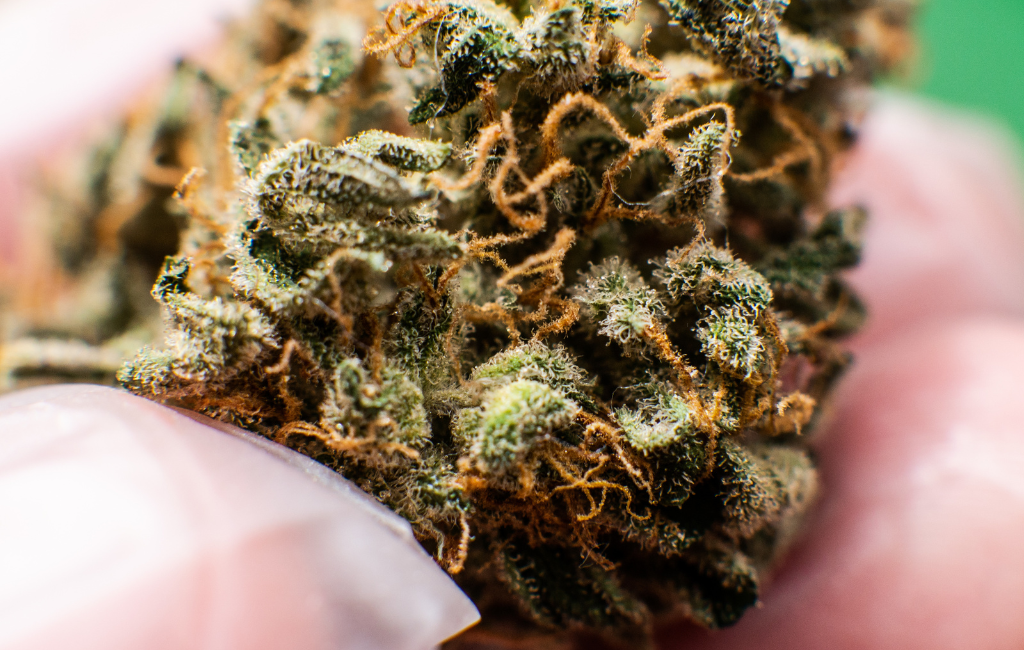THCa Flower: Nature’s Healing Power
In recent years, the interest in cannabis and its derivatives has surged, with a particular focus on the therapeutic potential of various cannabinoids. Among these, THCa (tetrahydrocannabinolic acid) has emerged as a compound of significant interest. Unlike its more famous counterpart THC, THCa is non-psychoactive, offering a range of potential health benefits without the high. This article explores the healing power of THCa flower, its benefits, and its role in modern medicine.
Understanding THCa
THCa is a naturally occurring cannabinoid found in raw and live cannabis plants. It is the acidic precursor to THC, the compound responsible for the psychoactive effects of cannabis. When cannabis is heated through smoking, vaping, or cooking, THCa is converted into THC through a process called decarboxylation. This transformation is what gives cannabis its psychoactive properties.
In its raw form, THCa does not produce a high, making it an attractive option for those seeking the therapeutic benefits of cannabis without the psychoactive effects. Research into THCa is still in its early stages, but preliminary studies suggest a range of potential health benefits.
Potential Health Benefits of THCa
- Anti-inflammatory Properties: THCa has shown promise in reducing inflammation, which could be beneficial for conditions such as arthritis and other inflammatory diseases.
- Neuroprotective Effects: Some studies suggest that THCa may have neuroprotective properties, potentially offering benefits for neurodegenerative diseases like Alzheimer’s and Parkinson’s.
- Anti-emetic Effects: THCa may help reduce nausea and vomiting, making it a potential option for patients undergoing chemotherapy or those with chronic nausea.
- Antioxidant Properties: As an antioxidant, THCa may help protect cells from damage caused by free radicals, contributing to overall health and wellness.
THCa in Modern Medicine
The potential of THCa in modern medicine is being explored through various studies and clinical trials. Researchers are particularly interested in its anti-inflammatory and neuroprotective properties, which could offer new treatment options for chronic conditions.
For instance, a study published in the “Journal of Neuroimmune Pharmacology” highlighted the potential of THCa in reducing inflammation and providing neuroprotection. These findings suggest that THCa could play a role in managing conditions like multiple sclerosis and epilepsy.
Case Studies and Real-World Applications
Several case studies have demonstrated the potential benefits of THCa in real-world applications. For example, a patient with severe arthritis reported significant pain relief and improved mobility after incorporating THCa-rich cannabis into their treatment regimen. Another case involved a child with epilepsy who experienced a reduction in seizure frequency after using THCa tinctures.
These anecdotal reports, while not definitive, provide valuable insights into the potential applications of THCa in managing various health conditions.
THCa vs. THC: A Comparison
While both THCa and THC are derived from the cannabis plant, they have distinct differences. The most notable difference is their psychoactive properties. THCa is non-psychoactive, meaning it does not produce the high associated with THC. This makes THCa an appealing option for individuals seeking therapeutic benefits without the psychoactive effects.
Another key difference lies in their legal status. In many regions, THCa is legal, while THC remains a controlled substance. This legal distinction allows for broader access to THCa products, particularly in areas where cannabis is heavily regulated.
Consumption Methods
THCa can be consumed in various forms, each offering unique benefits. Some popular methods include:
- Raw Cannabis Juicing: Consuming raw cannabis leaves and flowers through juicing preserves the THCa content, providing a nutrient-rich beverage.
- Tinctures and Oils: THCa tinctures and oils offer a convenient way to incorporate THCa into daily routines, allowing for precise dosing.
- Topicals: THCa-infused creams and balms can be applied directly to the skin, providing localized relief for pain and inflammation.
The Future of THCa Research
As interest in cannabis-based therapies continues to grow, so does the need for comprehensive research into the potential benefits of THCa. Ongoing studies aim to better understand its mechanisms of action and therapeutic potential. Researchers are particularly focused on exploring its role in managing chronic pain, inflammation, and neurodegenerative diseases.
With the increasing acceptance of cannabis in the medical community, THCa is poised to become a significant player in the field of natural medicine. As more studies are conducted, the understanding of THCa’s benefits and applications will continue to evolve.
Conclusion
THCa flower represents a promising avenue in the exploration of cannabis-based therapies. Its non-psychoactive nature and potential health benefits make it an attractive option for those seeking natural remedies. While research is still in its early stages, the preliminary findings are encouraging, suggesting that THCa could play a significant role in modern medicine. As the scientific community continues to investigate this compound, the future of THCa looks bright, offering hope for new and effective treatments for a range of health conditions.
Gold IRA Companies
THCa Flowers
Mushroom Coffee
Mushroom Gummies
Delta 9 Gummies
Peptides
Architect
Personal Injury Lawyer
Sell A Business
